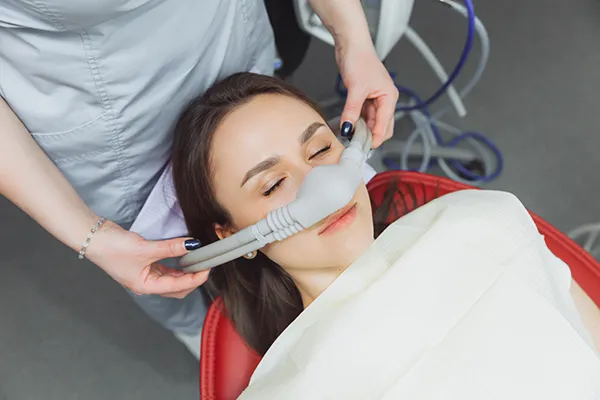The extraction of wisdom teeth is a frequent dental operation that involves the surgical removal of one or more wisdom teeth.
These teeth are the third and final set of molars that normally erupt in a person's mouth when they are in their late teens or early twenties.
These teeth frequently lead to issues such as crowding, impaction, infection, and pain, all of which can necessitate their extraction from the mouth.
Get in touch with Mountain State Oral and Facial Surgery to learn more about wisdom tooth extraction.
The Procedure for Wisdom Tooth Removal
A local anesthetic will be used to numb the region around the tooth that will be extracted during the treatment.
It may be necessary to create an incision in the gum tissue to gain access to the tooth if it is impacted or only partially erupted.
After that, we will use forceps to delicately remove the tooth from its socket and, if necessary, will stitch the region to assist in your recuperation.
Guidelines to Follow After Wisdom Tooth Removal
It is imperative to adhere to the aftercare guidelines after the extraction of your wisdom teeth to facilitate rapid recovery and reduce the likelihood of experiencing any issues.
The following are some guidelines for aftercare in general that may be provided:
Bite Info a Gauze Pad
Following the procedure, we will instruct you to take a bite into a gauze pad to assist in the management of bleeding.
The gauze pad should be changed every 30 to 45 minutes until the bleeding stops.
Use Ice Packs
Use ice packs on the afflicted area for the first 48 hours after the treatment to reduce swelling and alleviate any discomfort.
Take Medication
The patient should take painkillers given to them by the doctor as a prescription or recommended to them as over-the-counter medication to alleviate any pain or discomfort.
Consume Meals That Are Soft and Easy to Chew
For the first few days after the procedure, the patient should avoid eating items that are hard, crunchy, or sticky, and focus on eating foods that are soft and simple to chew.
Refrain From Drinking and Smoking
It is important to refrain from smoking and drinking alcohol for at least 24 hours following the treatment.
Since smoking and drinking alcohol might slow down the healing process and raise the risk of problems, you should avoid these activities.
Clean Your Teeth Gently
For the first few days after the treatment, the patient should brush their teeth carefully, taking care to avoid the region around the extraction site.
Follow-Up
Follow our instructions regarding follow-up appointments.
We will schedule a follow-up appointment for you so that we can monitor the healing process and remove any stitches that may be required.

Contact Us Today
The extraction of wisdom teeth is a routine treatment that does not pose any significant health risks and can be helpful in reducing pain and avoiding subsequent dental issues.
Patients can ensure a rapid and successful recovery by following the aftercare guidelines.
If you live in Beckley, get in touch with our dentists at Mountain State Oral and Facial Surgery to know more.
Frequently Asked Questions
Why Are Wisdom Teeth Removed?
Wisdom teeth are often removed because they can cause problems when they start to emerge. Common issues include impaction (where the teeth can't fully erupt due to lack of space), misalignment, pain, and potential damage to adjacent teeth. They can also be difficult to clean, leading to decay and gum disease.
When To Take Wisdom Teeth Out?
The best time to remove wisdom teeth varies, but it's typically recommended in late adolescence or early adulthood, usually between the ages of 17 and 25. Dentists and oral surgeons often recommend removal based on X-rays and exams before they cause problems or when early issues are detected.

